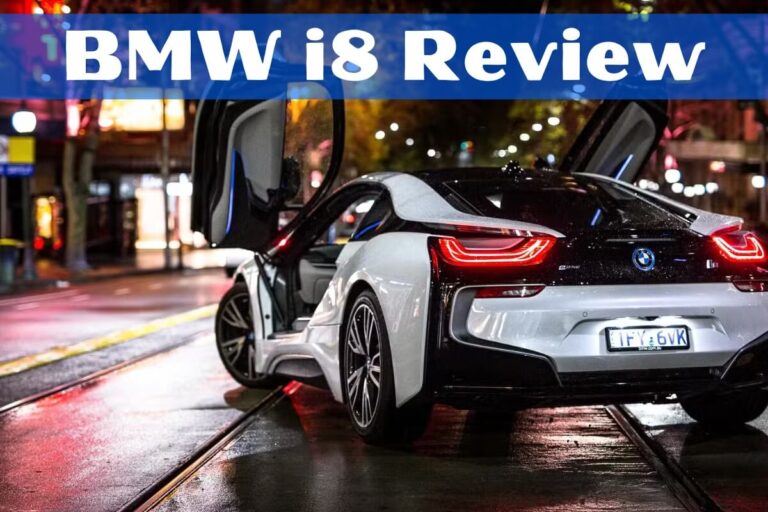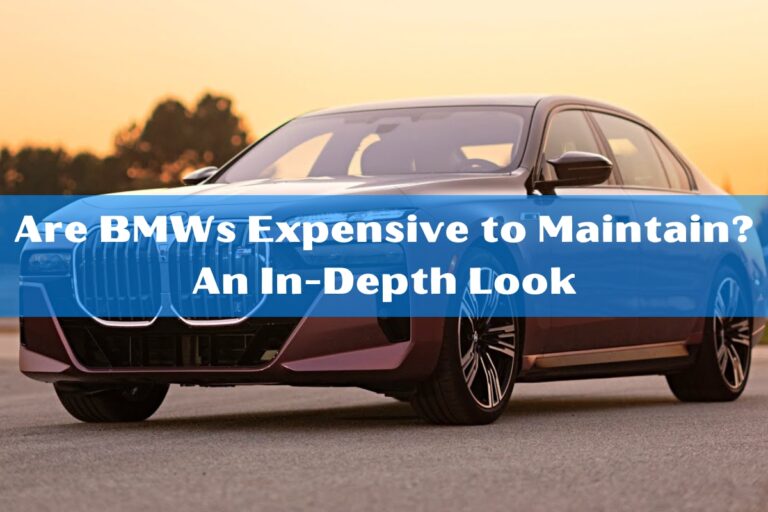Is BMW a Luxury Car?

The History of BMW’s Rise to Luxury Status
BMW’s origins can be traced back to 1916 when it was founded as an aircraft engine manufacturer. It wasn’t until the 1920s that BMW began producing its first motorcycles, and then passenger vehicles in the 1930s. During this time, BMW established itself as a brand focused on high-performance, driver-centric vehicles rather than pure luxury.
The iconic BMW design language, with its distinctive kidney grille and proportions emphasizing the engine and driver, started to emerge in the 1930s with models like the 327 and 335. This DNA of putting driving dynamics first would remain a core part of BMW’s identity as the company expanded into the passenger car market.
In the post-war years, BMW solidified its reputation as a maker of premium, well-engineered vehicles that offered a truly engaging driving experience. The 1960s saw the introduction of the New Class sedans, which brought BMW’s performance-oriented ethos to a broader audience and laid the groundwork for the brand’s future success.
What Defines a Luxury Car?
Before we can determine if BMW fits the luxury car mold, it’s important to understand what exactly qualifies a vehicle as “luxury.” There are a few key factors that typically define a luxury car:
Features and Amenities: Luxury cars are expected to come loaded with the latest high-end features, from premium materials and finishes to advanced technology and entertainment systems. Things like real wood trim, premium leather upholstery, and cutting-edge safety tech are hallmarks of the luxury segment.
Performance and Driving Dynamics: While comfort and opulence are important, luxury buyers also demand strong performance capabilities. Powerful engines, precise handling, and an engaging driving experience are essential for a vehicle to be considered truly luxurious.
Brand Prestige and Exclusivity: The luxury car market is as much about status and image as it is about the product itself. Luxury brands cultivate an aura of exclusivity, with vehicles that are seen as symbols of wealth, success, and discerning taste.
Why BMW is Considered a Luxury Brand
So how does BMW stack up against these criteria for a luxury vehicle? The brand has firmly established itself as a maker of high-end, performance-oriented passenger cars that cater to demanding drivers. Here’s a closer look at why BMW is widely regarded as a luxury automaker:
High-Quality Materials and Craftsmanship: BMW is known for using premium materials in its vehicles, from fine leather to genuine wood and aluminum trim. The fit and finish of BMW interiors is impeccable, with a level of attention to detail that rivals other luxury marques.
Advanced Technology and Safety Features: BMW has been at the forefront of integrating the latest technology into its vehicles. From intuitive infotainment systems to innovative driver assistance features, BMW consistently offers some of the most advanced tech in the luxury space.
Unparalleled Driving Experience: This is where BMW really shines. The brand’s vehicles are renowned for their engaging, driver-focused handling and performance that set them apart from more comfort-oriented luxury cars. BMW’s commitment to the “Ultimate Driving Machine” ethos is a key part of its luxury appeal.
Prestigious Brand Positioning: BMW has carefully cultivated an image of exclusivity and prestige. As one of the leading German luxury automakers, BMW is viewed as a status symbol that denotes sophistication and success. This brand cachet is a major part of what defines BMW as a luxury player.
Comparing BMW to Other Luxury Automakers
Of course, BMW doesn’t exist in a vacuum – it competes directly with other prestigious luxury brands. How does it stack up against its closest rivals?
Mercedes-Benz: Often seen as BMW’s main competitor in the luxury space, Mercedes-Benz is known for its emphasis on comfort, refinement, and high-end appointments. While Mercedes excels at delivering a plush, premium driving experience, BMW is generally regarded as the more driver-focused of the two German luxury marques.
Audi: Like BMW, Audi has built a reputation for blending luxury, technology, and performance. However, Audi’s lineup tends to skew more toward a balance of comfort and dynamics, whereas BMW leans harder into the sporty, driver-centric side of the equation.
Asian Luxury Brands: The rise of luxury brands from Asia, such as Lexus, Acura, and Genesis, has introduced more competition in the premium car market. While these brands offer compelling value and features, they have yet to achieve the same level of prestige and brand cachet as the established German luxury automakers.
The Future of BMW as a Luxury Brand
As the automotive landscape continues to evolve, BMW is adapting to stay at the forefront of the luxury market. The brand’s push into electrification, with models like the all-electric i4 and iX, demonstrates its commitment to delivering high-end, sustainable mobility solutions.
At the same time, BMW is working to maintain its performance heritage and driver-focused DNA even as it embraces new technologies and powertrain options. The latest generation of BMW’s core models, from the 3 Series to the 8 Series, showcase the brand’s ability to blend luxury, technology, and driving dynamics.
Looking ahead, BMW will likely continue to target new luxury segments and demographics, expanding its reach while preserving the core elements that have made it a beloved brand among enthusiasts. Whether it’s catering to eco-conscious urbanites or high-performance thrill-seekers, BMW seems poised to remain a dominant force in the luxury automotive space for years to come.
Conclusion – Is BMW Truly a Luxury Car Brand?
After delving into BMW’s history, the defining characteristics of luxury vehicles, and how the brand stacks up against its competitors, the answer is clear: Yes, BMW is unequivocally a luxury car brand.
From its high-quality materials and craftsmanship to its unparalleled driving dynamics and prestigious brand image, BMW checks all the boxes when it comes to what makes a car truly luxurious. While the brand may have started out focused on performance, it has evolved over the decades to become a leader in the premium automotive market.
Whether you’re in the market for a sporty coupe, a spacious SUV, or an electric sedan, BMW offers a diverse lineup of vehicles that cater to the discerning tastes of luxury car buyers. So if you’re seeking a balance of comfort, technology, and driving excitement, a BMW is certainly worth considering as your next premium vehicle purchase.






